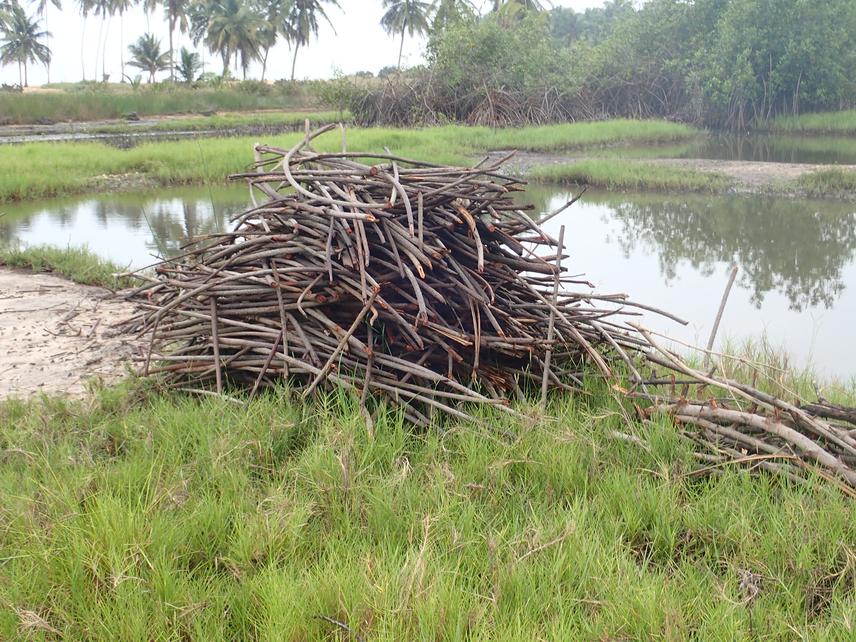Olaniran Hamed Odountan
Other projects
11 Feb 2019
Biomonitoring of Lake Aheme, Benin, Using Macro-Invertebrate Diversity: State of the Art and Policy Implications for Sustainable Management
Despite their ecological and economic importance, mangrove habitats around Lake Ahémé suffer from degradation. Moreover, during the dredging which has already started in the coastal lagoon, an eventual excess of sediments carried in can smother mangrove roots. Both the lack of water and excess sediments resulting, will stop mangrove seedlings from regenerating and foster the mangrove degradation and the growth of non-mangrove and invasive species. Mangrove’s degradation will lead to the reduction of ecosystem services which will affect local communities relying on them. A number of initiatives/actions (e.g., Project:BEN/SGP/OP6/Y4/CORE/IW/18/03; Project FAO:TCP/BEN/3502) to contribute to mangroves conservation are being undertaken but they are not yet achieving the expected changes. A parsimonious approach to promotion of conservation strategy would be for conservationists to place greater emphasis on assessing the suitability and shortcomings of past and ongoing conservation activities prior to the promotion of new ones.

This means to consider values, interests, and opinions of key stakeholders especially in the context of promotion of community-based management options and lake dredging. Understanding the interests of a diverse range of stakeholders and how a resource should be managed and conserved in a way that takes their interests and opinion into account, can ideally lead to the adoption of a more effective strategy for the sustainability of mangrove resources. Therefore, this study aims at identifying the perceptions of different stakeholder groups (local communities, conservationists, decision-makers and scientists) in regard to the shortcomings and gaps of past and ongoing management options of mangroves around the lake, and to investigate any differences that exist between these options and those expected by the stakeholders. Firstly, we will assess the level of knowledge of the importance and ecosystem services of mangroves by local community. This is important as knowledge of ecosystem services can create incentives for mangrove conservation, hence increasing ownership, buy-in and acceptance of conservation processes. Relying on the findings, environmental education and small reforestation will be carried out.